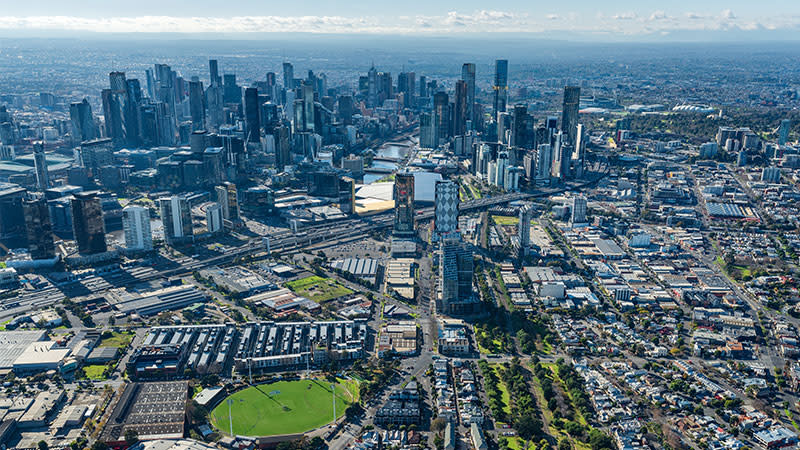Malaysian Developer Readies $180m Melbourne Project

Malaysian development group Gamuda Land is readying plans for a $180-million apartment project in Melbourne’s Fishermans Bend.
Gamuda Land chief executive Ngan Chee Meng said the 200-apartment mixed-use project, planned for a 2600sq m site in South Melbourne, was part of an ambitious pipeline planned for delivery over the next five years.
“Since Australia’s borders reopened for business, Gamuda Land has been actively looking to expand its foothold in all capital cities, in order to bolster residential supply by an additional 1000 residences,” Ngan said.
“The South Melbourne site was immediately attractive to us, as it plays to Gamuda Land’s global experience in developing sustainable communities and townships.”
The 20-level residential tower will replace the former 70-year home of Dunlop Rubber after Gamuda Land picked up the site at 272 Normanby Road late last year for $24 million.
Gamuda Land, a subsidiary of Kuala Lumpur-listed infrastructure and construction giant Gamuda, has been working with local partners to identify sites and projects, particularly in Melbourne, to deliver high-quality, liveable and future-focused products targeted at younger demographics.
The developer will partner with Hayball Architects, landscape architects Oculus and boutique apartment developer Hip v. Hype for its South Melbourne project.
The project will be Gamuda Land’s first since completing its debut Australian development in 2018, a high-rise residential tower and a 6-star hotel on a 1400sq m site at 661 Chapel Street in South Yarra.
Gamuda bought the South Yarra site in 2016 with approval for 260 units and scaled it back to 116 units and a penthouse.

Its South Melbourne project, comprising a mix of one, two and three-bedroom apartments, is expected to break ground mid-2023.
It will include a rooftop garden, wellness studio and an atrium retail space for 14 specialty retailers. The building will also have cascading green walls featured prominently throughout its corridors, lobbies and terraces.
The project will contribute to Gamuda Land’s initiative, launched in 2021, with a goal of planting one million trees across its portfolio by the end of 2023.
The developer has set aside a portion of the site for a new 3000sq m public park as part of plans that will see a section of neighbouring Johnson Street permanently closed and more than 6000 native plants and trees planted.
It has turned to traditional landowners for their considerations in the project’s design brief to learn more about the site’s natural landscape and its indigenous heritage in order to restore part of the site back to its pre-colonial state.
“As a town maker, [we] are well positioned to apply our expertise in our international projects towards—addressing challenges like climate change and housing affordability—which form the cornerstone of our scheme for South Melbourne,” Ngan said.
“It was important to us that the project made a significant contribution to enriching air quality and reducing heat island effect, delivering on our goal to reduce its carbon emissions by 40 per cent by 2030.”
Fishermans Bend, Australia’s largest urban renewal project, is being redeveloped to provide dwellings for up to 80,000 residents by 2050.
The precinct has lured a lot of developers and large-scale projects including the $2-billion new University of Melbourne campus, a $100-million childcare facility, a secondary school, employment precinct, parks and public transport.
Seperatley, Hong Kong-born developer Jimmy Pak Chung Wong’s Claric Ninety-Nine is also preparing to break ground on a $150-million apartment tower in Fishermans Bend. Wong’s 50-storey mixed-use tower will comprise have 370 apartments, office space and retail space.
Meanwhile, Gurner has plans for three apartment towers, worth $1 billion, on a 10,000sq m island site at 2-28 Montague Street.
















